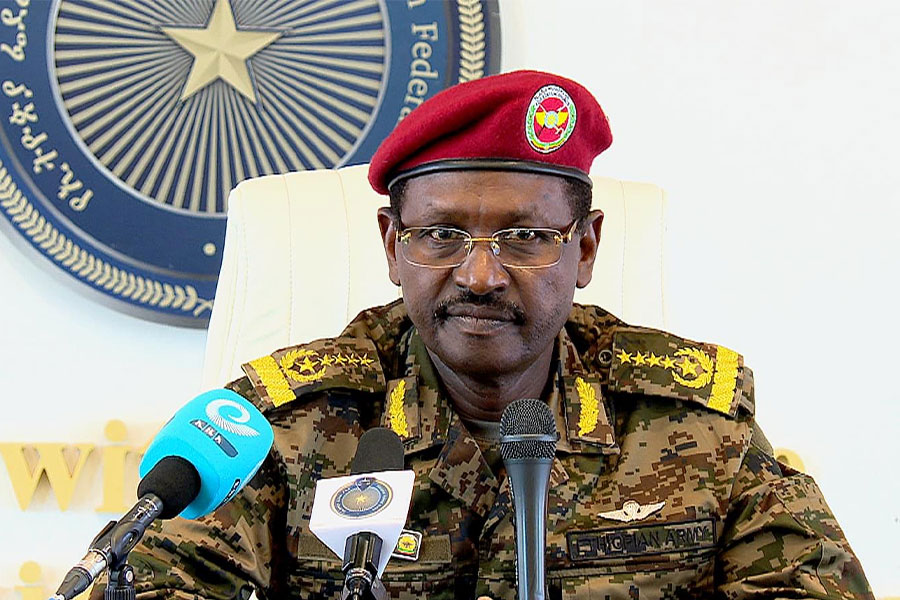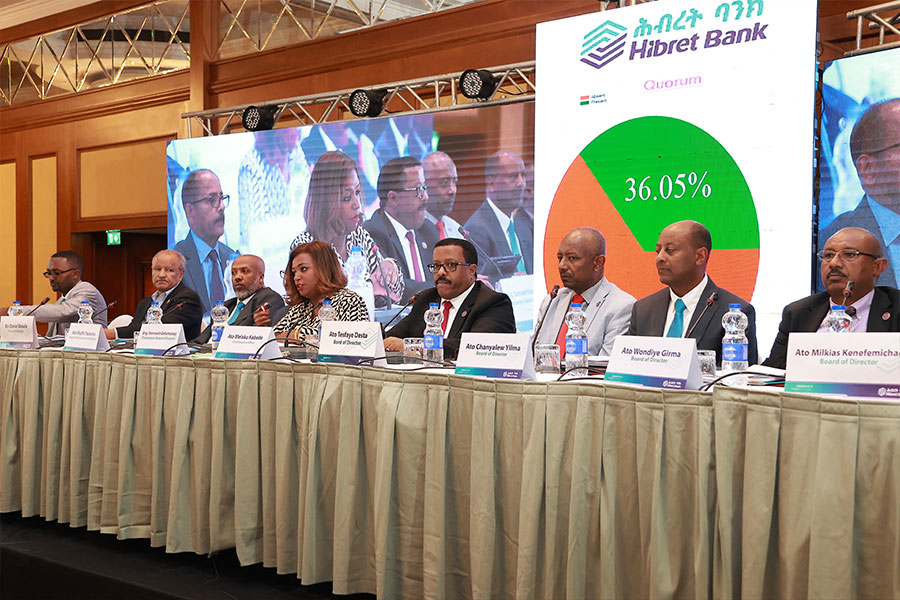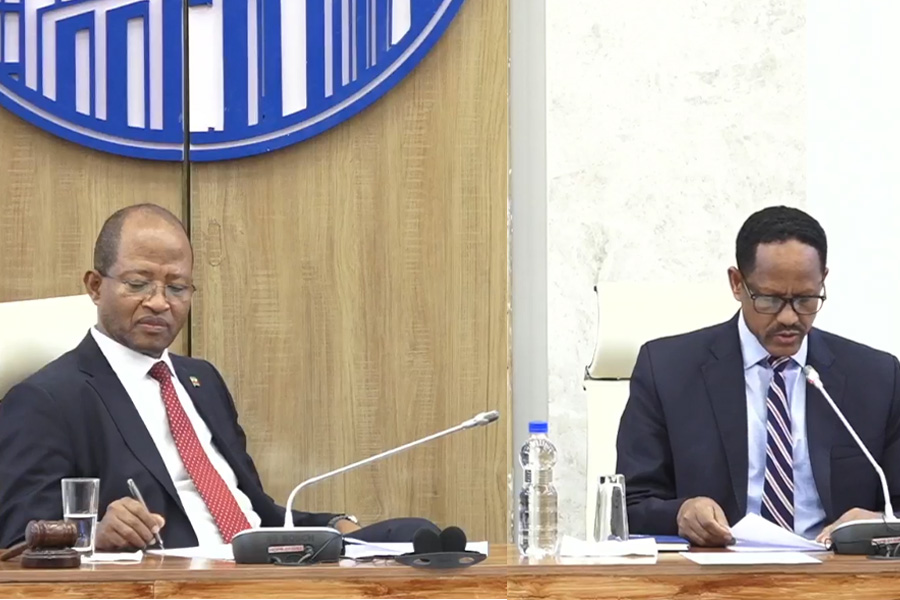
Featured | Sep 13,2022
Apr 10 , 2023
Twenty-five years ago, I, along with Irish Prime Minister Bertie Ahern, US President Bill Clinton, and the leaders of Northern Ireland's four main political parties, presented what became known as the Good Friday Agreement. That accord resolved a conflict that had caused thousands of deaths and untold grief and destruction for decades, arguably for centuries.
The peace, like the political institutions to which the Agreement gave rise, was imperfect and fragile, and it remains so. But compare Northern Ireland today with how it was a quarter-century ago, and what has been achieved can legitimately be called a transformation. The peace has held, the economy has doubled in size, and Belfast, a city which used to be dressed in barbed wire and covered with military patrols, is now a thriving European city with a burgeoning technology sector and bustling nightlife.
We have grounds for cautious celebration on this anniversary. It is hard to think of another truly successful peace process in recent history.
I am often asked whether there are lessons from the Agreement for conflict resolution elsewhere in the world. The reality is that every conflict is unique, differentiated by cause, duration, outside support, and many other factors. Nonetheless, some lessons are discernible and worth discerning.
Peace cannot take root without an agreed framework seen by both sides as conceptually fair. In the case of Northern Ireland, the core part of the Agreement was the principle of consent: those who want a united Ireland must accept that the North should remain part of the United Kingdom (UK) for as long as a majority there wish it. This was a big concession to Northern Ireland's Unionists.
In return, Unionists accepted the principle of equal and fair treatment for the nationalist, predominantly Roman Catholic community, underpinned by new institutions in areas like policing and justice, and by the recognition, through cooperation with the Irish Republic, of the nationalist aspiration for the unity of Ireland.
But based on the two-state solution, the moribund Israeli-Palestinian peace process shows that a framework alone is insufficient. A peace process needs constant attention from those involved. An agreed framework is just the beginning. It is the roadmap, not the destination.
Achieving peace requires time, patience, creativity, and dogged, never-ceasing determination. Peace processes are exactly that: a process, not an event. We spent long years – nine in total – on implementation, with many crises, setbacks, and stumbling blocks along the way. Any one of them could have shut down the process had we not kept at it.
Negotiators must be unafraid to seek outside help.
"No one really understands our dispute like we do," they say. That is correct, but sometimes not understanding the dispute as they do holds the key to resolving it. The interventions by Clinton and US Senator George Mitchell, the subsequent visit to Northern Ireland and support for the process by President George W. Bush came at points that were instrumental in ensuring financial and political support structures.
The European Union (EU), too, was always looking for ways to help, and its flexibility in the face of the recent Brexit-related turmoil in Northern Ireland is another classic example of external assistance helping to overcome internal tension. Do not fear outsiders; use them.
That, of course, requires another component: exemplary leadership. The peace in Northern Ireland would never have happened without it. Leaders had to be prepared to tell their supporters uncomfortable truths, take criticism, and bear the shrieks of betrayal. Time and again during the process, there were moments when the easiest thing to do contradicted the right thing to do. Fortunately, we had leaders willing – often at great personal cost – to take the right path, not the easiest one.
A successful process is more likely if those who are engaged in it have confidence in one another. I always tell students that politics is personal; it is a people's business. Because there are so many tricky issues to resolve - because the politics of each person may point in different if not opposite, directions - conversations that are open, frank, and strategic must be held.
A partner in the process has a problem? See it from their angle. Discuss it. Find a solution together. Friendship may be too hard to achieve, but a partnership is not.
All parties must recognize that the conflict will have given rise to the deepest mistrust. Striking an agreement is not the same thing as developing trust. The first is formal. The latter is emotional. Acknowledge it. Seeking ways to build confidence is an investment that will pay the richest dividends.
Finally, never give up. People are so cynical about politics, usually because they see little change in their daily lives. But step back a moment. The broad sweep of history is like an impressionist painting: what looks like a blur up close reveals itself at a distance.
With the distance of 25 years, we can see that the Agreement brought real, far-reaching change. Many living today are the beneficiaries of it. Whether they know it or think about it does not matter. What matters is that it was done.
PUBLISHED ON
Apr 10,2023 [ VOL
24 , NO
1197]

Featured | Sep 13,2022

Commentaries | Jun 14,2025

Radar |

Fortune News | Apr 03,2023

Verbatim | Jun 21,2025

Commentaries | Sep 10,2023

Radar | Apr 21,2024

Radar | Nov 27,2023

In-Picture | Jul 28,2024

Fortune News | Nov 24,2024

Photo Gallery | 180740 Views | May 06,2019

Photo Gallery | 170931 Views | Apr 26,2019

Photo Gallery | 162034 Views | Oct 06,2021

My Opinion | 137310 Views | Aug 14,2021

Dec 22 , 2024 . By TIZITA SHEWAFERAW
Charged with transforming colossal state-owned enterprises into modern and competitiv...

Aug 18 , 2024 . By AKSAH ITALO
Although predictable Yonas Zerihun's job in the ride-hailing service is not immune to...

Jul 28 , 2024 . By TIZITA SHEWAFERAW
Unhabitual, perhaps too many, Samuel Gebreyohannes, 38, used to occasionally enjoy a couple of beers at breakfast. However, he recently swit...

Jul 13 , 2024 . By AKSAH ITALO
Investors who rely on tractors, trucks, and field vehicles for commuting, transporting commodities, and f...

Nov 1 , 2025
The National Bank of Ethiopia (NBE) issued a statement two weeks ago that appeared to...

Oct 25 , 2025
The regulatory machinery is on overdrive. In only two years, no fewer than 35 new pro...

Oct 18 , 2025
The political establishment, notably the ruling party and its top brass, has become p...

Oct 11 , 2025
Ladislas Farago, a roving Associated Press (AP) correspondent, arrived in Ethiopia in...

Nov 2 , 2025
The National Bank of Ethiopia (NBE) has scrapped the credit-growth ceiling that had s...

Nov 2 , 2025 . By SURAFEL MULUGETA
The burgeoning data mining industry is struggling with mounting concerns following th...

Nov 2 , 2025 . By YITBAREK GETACHEW
Berhan Bank has chosen a different route in its pursuit of a new headquarters, opting for a transitional building instea...

Nov 2 , 2025 . By BEZAWIT HULUAGER
Nib International Bank S.C. has found itself at the epicentre of a severe governance...